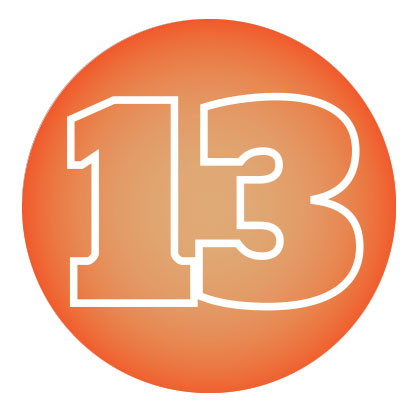Doorways And Gateways

“How astonishing it is,” the Chazon Ish writes, “that a person is able to share his worries with the Master of the Universe in the same manner that he would speak to a friend!”
“Why are you coming in through the back door?” This was the Chofetz Chaim’s question to the many callers who sought his brachos.
If you’re trying to visualize his house and its entrances, you misunderstand. The Chofetz Chaim was not referring to the portals of his home; he was alluding instead to the gateways of heaven.
“Go directly to the Master of the Universe! Take a Tehillim and daven; ask Him for His blessings. That’s what I do,” the Chofetz Chaim would insist. “When I need something, I speak to my Father. A father wants to listen to his children. He doesn’t want to hear about their needs from someone else.”
The message is clear: All brachos come from Hashem. You can petition Him directly (the front door), or you can ask a tzaddik to be the conduit (the back door), but ultimately there’s one, and only one, Source of blessing.
Active Service
The fifth principle of the Rambam’s Thirteen Principles of Faith addresses this very issue: I believe with perfect faith that to the Creator alone it is proper to pray, and that it is not proper to pray to any other.
There are two statements here: the first instructs us to believe in the concept of prayer and worship of Hashem, which implies that Hashem wants us to connect to Him, and that He listens, cares and responds. The second statement tells us to recognize that we may not direct this service to any other force, deity, or power.
Although the listing of this principle in the siddur only mentions prayer, the Rambam writes that this fifth principle includes other forms of avodah, as well: “Serving Him, exalting Him, making His greatness known, and fulfilling His mitzvos.” The common theme of these actions is expressing our submission to Hashem’s greatness in a multitude of ways.
In the Beis Hamikdash, avodah included bowing to the ground. Rav Pincus explains that when a person stands, his head is higher than his limbs, indicating its superiority; when he prostrates himself, he lowers his head and aligns it with his body, expressing that, when relating to his Creator, there’s no difference between his head and his limbs — they’re equally inferior. Another form of avodah in the Beis Hamikdash was the offering of korbonos, which symbolized our readiness to spill our blood for Hashem, for we owe our very lives to Him.
This principle teaches us that it’s not sufficient to believe in Hashem’s existence, unity, management, and power in an abstract fashion — we must serve Him actively, as servants work for their master. Tefillah is one of the primary and most direct ways to achieve this, especially today, when it replaces korbonos.
At first glance, it doesn’t appear that tefillah is a fitting exchange for sacrifices. After all, a korbon is an offering to Hashem, yet a prayer is a request to receive. Rav Chaim Friedlander explains that the two activities have essentially the same purpose. They both express our knowledge that we have nothing of our own and are completely dependent on Hashem. A sacrifice indicates that all we already have belongs to Hashem; tefillah specifies that only He can fill our future needs.
The goal of tefillah is for man to feel, in the words of the Mesilas Yesharim, “that he is actually standing before the Creator and conversing with Him.” Like all forms of Divine service, tefillah requires submission, effort, and focus. It’s been said that a person’s status in avodas Hashem is manifested by his level of prayer, for this reveals the degree to which Hashem’s presence is real for him, and the degree to which he views himself as a servant who is completely dependent on his master.
More than a Wish List
The quintessential tefillah of Shemoneh Esrei contains nineteen brochos, thirteen of which are specific entreaties: wisdom, salvation, health, sustenance, and so on. Is it proper to give suggestions to Hashem? Perhaps a general request for His wise assistance would be more appropriate. These details, Rav Dessler tells us, are the essence of tefillah, for the more we ask for, the more we view ourselves as needy, helpless servants who have absolutely nothing of their own and depend on the Master’s mercy.
Still, Rav Pincus cautions us to recognize that tefillah is more than the recitation of a “wish list.” We must stop and remember that we’re standing not only before a benefactor, but Hakeil Hagadol Hagibor V’hanorah, the Great, Powerful, and Awesome King. It’s for this reason that in Shemonah Esrei we frame our requests with shevach, praise, in the beginning, and with hodaya, thanksgiving, at the end.
There is yet a larger framework in which we view tefillah. In truth, it’s unnecessary to inform Him of our wishes, for there’s no doubt that Hashem sees our difficulties, perceives our needs, and understands our situation — even better than we ourselves do. Rather, we daven, as the Ramchal explains, because this is Hashem’s plan for mankind: we must articulate our needs to Him in order to receive the abundance we seek. Hashem is poised to give: the channels are in place, the system is ready — it’s our prayer that activates the flow. We employ the expression “gates of prayer,” for tefillah opens the passageways.
Why did Hashem institute this system? It has been said that we don’t daven because we have needs; rather, we have needs so that we will daven. We are meant to have challenges and to feel weak, vulnerable, and dependent, for this prompts us to turn to Hashem, and only Hashem, for support and sustenance. Clearly, the conversation and connection with Hashem is a goal in itself.
The Mishnah Berura (98, 9) writes that one should be exceedingly careful not to daven merely to fulfill his obligation. There are many voices of tefillah. We may speak to Hashem from desperation or from exultation, with anguish or with joy, in pleading or in thanksgiving. In all cases we are reinforcing our awareness and acknowledgment of His constant presence and unlimited power. If the tefillah has stirred our soul with feelings of awe, inspiration, and passion, it has indeed been an “avodah.”
Go Direct
“How astonishing it is,” the Chazon Ish writes, “that a person is able to share his worries with the Master of the Universe in the same manner that he would speak to a friend!” This wonderment is reflected in the words of Hallel (Tehillim 113): “Who is like Hashem, our G-d, hamagbihi lashaves, Who sits on high, umashpili lir’os, and lowers Himself to view the heavens and the earth?” The Malbim points out that this verse praises Hashem who is elevated above both the heavens and the earth and yet bends down, so to speak, to care for us. To borrow an analogy from the Nefesh HaChaim, this is akin to a human king relating to the members of an ant colony!
In fact, idol worship originated in the time of Enosh because of this incredulity. The earliest form of avodah zara, or foreign service, began with the erroneous belief that it was inappropriate to supplicate the King directly and that homage should be paid to Hashem’s messengers — angels, the sun, stars, and the like. The Torah, however, warns repeatedly that this is categorically forbidden.
The Nefesh HaChaim explains to us that Hashem created stars, mazalos, and malachim to serve as channels between our physical universe and the higher realms, to transmit Hashem’s energy to our world. When we describe these intermediaries as creations who “possess a mouth but do not speak, ears but do not hear (Tehilim 115),” we’re expressing the fact that they are programmed to be receivers and transmitters, yet they have no independent power or free will. When man ignores this fact and seeks to appease these beings and appeal to them, he has crossed the red line into the realm of avodah zara.
What was the attraction of avodah zara? The eved Hashem submits himself to Hashem’s rule. He knows that he’s not in control; Hashem alone determines his fate. This awareness encourages him to become deserving of Hashem’s beneficence. Furthermore, he recognizes that his needs, challenges, and difficulties are growth opportunities, sent to him so that he’ll respond by creating a relationship with his Creator through tefillah and other forms of service.
The oveid avodah zara will have none of this. He believes that he can circumvent the system. His goal is the fulfillment of his needs, not the relationship with Hashem. He relates not to the Source of all existence, but to the channels. He believes he can control his own destiny by manipulating the constellations, planets, and other celestial forces.
Malachim are included in the list of inappropriate addresses for prayer. When Yaakov Avinu wrestled with an angel and asked him his name, the malach answered, “Why are you asking for my name?” The Ramban expounds: You have no benefit in knowing my name, for I have no power or ability; this belongs to Hashem alone. If you call me, I cannot answer, nor can I rescue you from distress.
Similarly, the Gemara Yerushalmi instructs, “When trouble happens upon a person, he should not cry out to Michoel or to Gavriel; rather he shall call to Me, and I will answer him immediately.” To petition an angel, is not only futile, as the malach told Yaakov, but it is tantamount to servitude, as doing so implies that this celestial being has power and free will.
In fact, there is a fascinating controversy among the commentaries about asking a malach to daven for us or even to bring our prayers before the Heavenly Throne. In a well-known passage in the Selichos prayers, we direct our words to the angels: Machnisei rachamim, hachnisu rachameinu lifnei Baal Harachamim. In this stirring poetic request, we beseech the malachim to bring our prayers into the inner chamber and present them before Hashem.
The Maharal objects to these words, because we are forbidden to pray to and make requests of angels. Others argue that while it is forbidden to ask malachim to grant our requests, we may ask them to act as our messengers and bring our tefillos to Hashem, because in doing so we aren’t attributing power to them.
Since a human being isn’t a celestial creature and he does have free will, we are permitted to turn to a person for help (as long as we don’t attribute godly powers to him), and we may ask him for a brachah if we appreciate that he’s only the conduit, not the source of the blessing. Rav Hirsch notes that during Bircas Kohanim, the priestly blessing in the synagogue, the role of the kohanim is deliberately minimized. They stand in front of the congregation, but we do not look at them. They pronounce the blessing, yet not until the shliach tzibur dictates the words to them. It’s apparent that neither they nor their words have any magical power. And the text itself emphasizes that Hashem is the One who confers brochah: Yevorechecha Hashem; Ya’er Hashem; Yisah Hashem.
It’s the words of our own tefillos, more than anything else, that remind us that Hashem is our ultimate Patron. The heart, Rav Friedlander explains, is a reluctant learner, a stubborn student. It needs a thrice daily review of the realities of Hashem’s power and of our own frailty. The Shulchan Aruch writes, “One should daven in a pleading fashion, as a pauper begs at the doorway.” The Mabit notes that it would normally be rude and presumptuous to knock on the same door several times daily, with the same plea. We, however, know the precise address, where the door —the front entrance — is always open, and we are eagerly awaited.
Sources include teachings of Rabbi Moshe Shapiro, Rabbi Zechariah Fendel, Rabbi Ezriel Tauber, Rabbi Bentzion Epstein, Rabbi Akiva Tatz
(Originally featured in Family First, Issue 475)
Oops! We could not locate your form.








